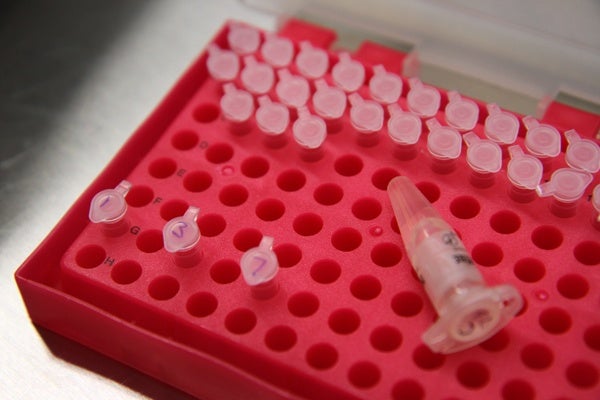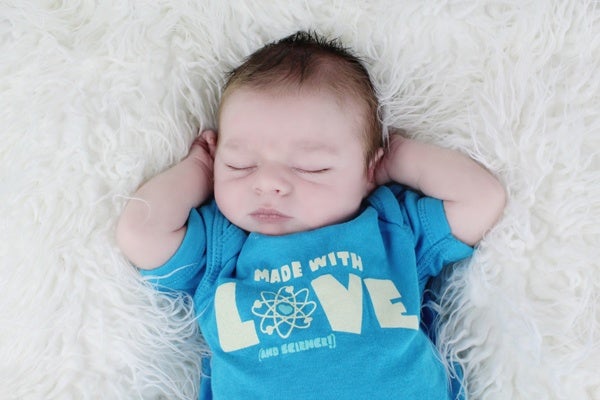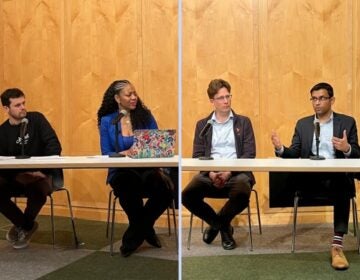Philly baby the first born using new in vitro screening technique
An infant born to a Philadelphia couple on May 18 is a worldwide first: Connor Levy is the first baby born after his parents used a genetic screening process that boosts pregnancy rates for couples using in vitro fertilization.
Dr. Michael Glassner is the director of the Main Line Fertility Center in Bryn Mawr, Pa. That’s where the story of Connor began last year.
But here’s the big picture as it relates to women undergoing IVF: “In a 36-year-old, more than 60 percent of embryos are going to be abnormal,” Glassner said. “In a 42-year-old, more than 90 percent will be abnormal.”
Connor’s mom was 35 at the time, and had no luck with earlier treatments.
Now she’s the face of a new process called “next generation sequencing,” or NGS, where doctors can better identify the embryos that will lead to a successful pregnancy versus those that will lead to early miscarriage or chromosomal defects.
“It’s really neat being involved in something like this,” said Marybeth Scheidts, Connor’s mother. The genetic sequencing trial she participated in was devised at Oxford University in London.
From 13 embryos to choose from, Scheidts says three came back as viable — two males and one female.
The couple opted to implant just one, after doctors expressed confidence it would be a success.
Until recently, she and her husband, David Levy, didn’t realize the broader significance of Connor’s birth.
“A few weeks ago, Dr. Glassner called just to see how everything was going,” Scheidts said, “and he was like, ‘You know, I just wanted to let you know Connor’s the first baby born from this genetic testing and it’s a really big deal over in Europe.’ And we were like, ‘Wow, that’s cool.'”
She says the last few days have been busy with calls from international reporters.
Researchers say the new test will make in vitro fertilization cheaper, as it boosts the odds of a successful pregnancy the first time without increasing the odds of twins or triplets.
Larger trials are still forthcoming.
Glassner, the Main Line fertility doctor, thinks this will “revolutionize the field.”
Still, he expects the process — which maps out thousands of genetic traits for each embryo — could also lead to ethical questions if adopted more widely.
“We are just touching on the lowest tier of testing” with this new technique, Glassner said. “We’ll be able to tell you a lot about what this embryo will turn into — and that will bring up whole other ethical issues about selection.”
WHYY is your source for fact-based, in-depth journalism and information. As a nonprofit organization, we rely on financial support from readers like you. Please give today.












